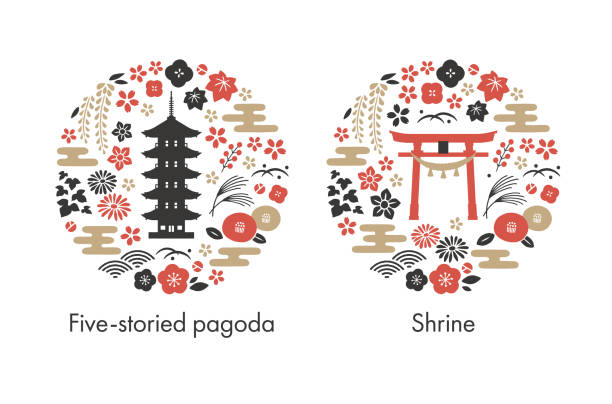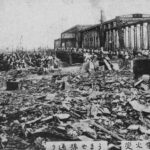
I usually blog about the Roaring 20s in the U.S., but yesterday I arrived in Japan for two weeks. So, I'm looking at the non-roaring 20s here.
In World War I, few people from Japan died. In fact, the country only lost 415 people and all of those were in the military. No civilians died. Japan did not play a major role in fighting during the war.
The period after the war hit Japan hard. The end of the Taisho period, named for the emperor of Japan who reigned from 1912 to1926, was marked by economic problems, rising threats from the USSR, China, and Korea, and failing diplomatic relations with the United States over racist treatment of Japanese immigrants.
 In 1923, a devastating earthquake hit the Tokyo region, killing over 100,000 people. Known as the Great Kanto Quake, it remains Japan's worst quake in modern history.
In 1923, a devastating earthquake hit the Tokyo region, killing over 100,000 people. Known as the Great Kanto Quake, it remains Japan's worst quake in modern history.
That same year, the British Empire ended a 21-year alliance with Japan, signaling Western and US apprehension of Japan's growing power in East Asia. The US enacted the Immigration Act of 1924, which included the Asian Exclusion Act. This federal act prevented immigration from Asia and set quotas on the number of immigrants from Eastern and Southern Europe. Many historians see this Act as the spark that spurred Japan down the path against their former allies into World War II.
Not that Japan did not have some happy moments in that decade.
Emperor Taisho's son, Hirohito, married Princess Kuninomiya Nagako in 1924 and ascended to the throne two years later. Hirohito was the  124th emperor of Japan, reigning from 1926 until his death in 1989. His reign of 62 years is the longest of any Japanese emperor.
124th emperor of Japan, reigning from 1926 until his death in 1989. His reign of 62 years is the longest of any Japanese emperor.
Japan took part in the 1924 Paris Olympic Games, sending 19 athletes to participate in 4 events: Track & Field (then called "Athletics"), swimming, tennis, and wrestling. Katsutoshi Naito brought home a bronze medal in feather-weight wrestling. The nation fared even better at the 1928 Amsterdam games, winning 2 gold, 2 silver, and one bronze medal, including a silver won by Kinue Hitomi (the first Japanese woman to participate in the Olympics) in the Women's 800-meter race.
A WWI business boom, during which many companies invested heavily in increased production capacity, proved to be a bubble. The post-1920 economic slowdown, combined with the earthquake of 1923, caused an economic depression, which led to the failures of many businesses. The government intervened through the Bank of Japan by issuing discounted "earthquake bonds" to overextended banks. In January 1927, when the government proposed to redeem the bonds, rumor spread that the banks holding these bonds would go bankrupt. In the ensuing bank run, 37 banks throughout Japan went under.
Extreme nationalism took hold in Japan during the late 1920s, as world economic depression hit. The emphasis focused on a preservation of traditional Japanese values, and a rejection of "Western" influence.
In 1900 and 1925, peace-preservation laws were passed to inhibit labor organization. In 1928, it became a capital crime to agitate against capital property or the Japanese “national polity” (kokutai).
Fun Fact: On September 30, 1927, Japan instituted universal male suffrage.
Fun Fact: Nissan was established in 1928. Its full name was Nihon Sangyo which translated to Japanese Industry. Formed originally as a holding company, the group's core business was real estate and insurance with hundreds of member companies, including fisheries and mining companies, as well as what Nissan is now known for—its automobile business.
